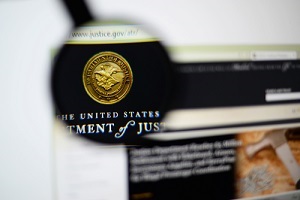DOJ Fights a Catch-22 in False Claims Act Cases

Cases under the False Claims Act live or die on their evidence, and it’s no surprise that defendants wage long wars to resist efforts by the plaintiff (whether a whistleblower or the government) to prove their case. Heeding the old saw about the best defense, defendants also generally go on the offensive. They happily foot staggering legal bills to try to wear out a typically less-well-funded plaintiff with onerous discovery demands.
In recent years, defendants have developed a new twist on these tried-and-true tactics in cases that the government has declined to pursue itself: in litigation of non-intervened cases, they target the government with burdensome demands for information about anything conceivably relevant, hoping to encourage DOJ to dismiss the whistleblower’s case out of frustration. They correctly recognize that a strong case with good relator’s counsel does not need the government’s intervention to bring them to justice, and they are looking to shut down the case however they can.
The Justice Department has rightly begun to push back against these tactics, calling them out for the dirty plays they are and, as critically, making clear they won’t work.
The Tactic: False Claims Act Defendants Serve Burdensome Discovery on Government
Although aggressive discovery tactics are hardly new, two much-discussed changes in the landscape combined to give defendants a new tool. Law360’s Jeff Overley noted this in a recent article (subscription required).
The story starts with defendants seizing on language in the Supreme Court’s decision in Universal Health Services, Inc. v. United States ex rel. Escobar to argue that a false claim or statement cannot be material under the FCA if the government pays the claims at issue, or subsequent similar claims, after it is aware of the alleged falsity. Setting aside the legal problems with that assertion, defendants have also improperly taken it as license to attempt broad discovery into the government’s processes for making decisions about whether to pay claims. They want to know not just whether the government may have heard inklings that their own claims were alleged to be fraudulent, but whether anyone in any part of the government has ever paid an arguably similar claim. And they want any document associated with any payment decision process.
Naturally, the government has resisted the breadth of these requests as overly burdensome, but the battle alone can drain resources.
Defendants have always done some version of this, but the so-called Granston memo, which we discussed here, has lent a sharper edge to this old tactic. The memo, incorporated into the Justice Manual, was designed to inform DOJ attorneys of considerations for dismissing non-meritorious qui tam actions, and some dismissals of relator’s cases have followed in its wake. Yet defendants have attempted to use it as a sword, making presentations to government attorneys arguing for dismissals under the Granston factors.
Here’s where defendants have gotten creative. Noting that one of the stated reasons for some of the dismissals has been the burdens that discovery would place on the government, defendants have set about manufacturing those burdens. Faced with a non-intervened qui tam, defendants pile discovery requests on the government. Then when the government points out how disproportionate and burdensome the requests are, defendants argue for dismissal.
The Government Response: Substantial Discovery Obligations do not Themselves Merit Dismissal
Rather than sit back, the government has decided to call out these tactics for what they are: naked attempts to create a problem that can be used as leverage to scuttle a case.
Granston himself kicked off the public pushback in a speech in 2019, explaining, “Just because a case may impose substantial discovery obligations on the government does not necessarily mean it is a candidate for dismissal.” From the context, it was clear he was talking to the defense lawyers in the room, who were already trying to impose those very obligations.
In a recent court filing, DOJ put an even finer point on it, blasting defense attorneys for piling unduly burdensome requests on them and then, when the Government protested, allegedly excusing them by saying that DOJ could always move to dismiss the case.
Calling the manufactured catch-22 out for what it is may be the primary way the Government can stop this new tactic. Courts could (and should) stop the unduly burdensome discovery. But it takes the Government announcing that it won’t work — then in fact not dismissing cases purely in the face of unpleasant discovery — to actually put a halt to the tactic. Anyone opposed to fraud or in favor of efficient court systems should wish them well.
READ MORE:
- False Claims Act
- Think you have a whistleblower case?
- Whistleblower FAQs
- The Constantine Cannon Whistleblower Team
- Contact us for a Confidential Consultation
Tagged in: Defenses, FCA Federal, FCA Materiality, Importance of Whistleblowers, Whistleblower Case,